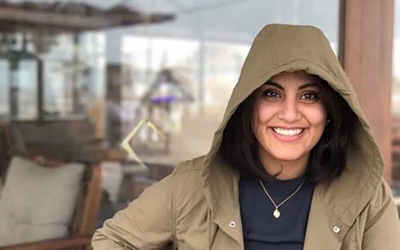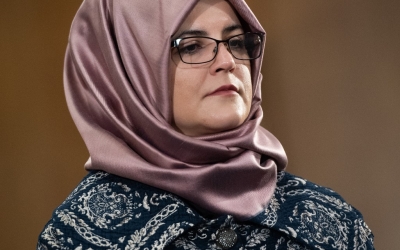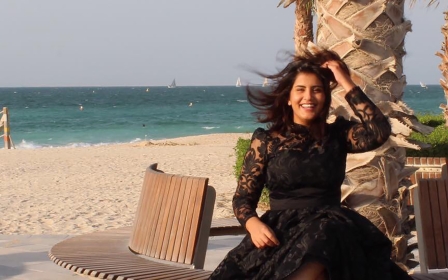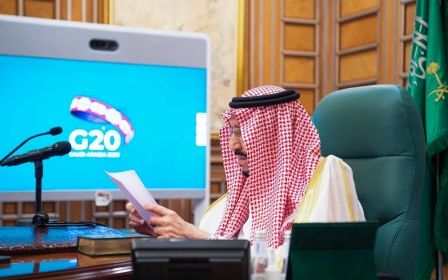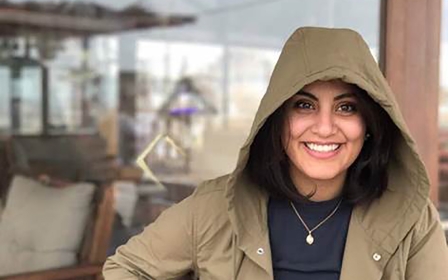Amnesty urges G20 leaders to 'stand up for brave activists' jailed in Saudi Arabia
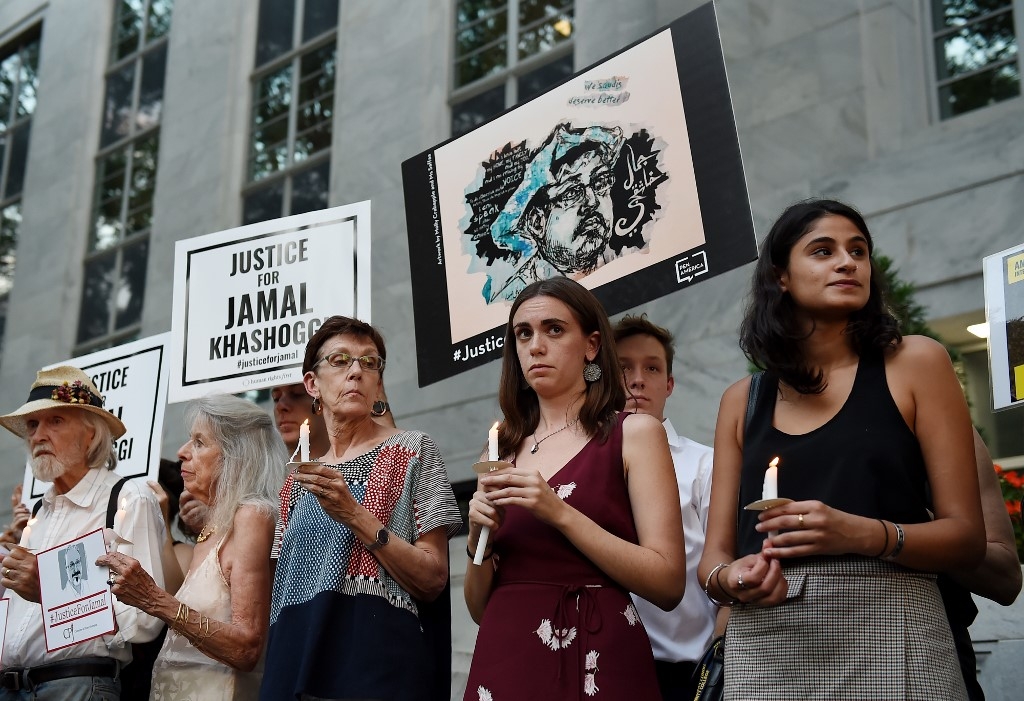
Member states of the Group of 20 (G20) meeting in this week's virtual summit hosted by Saudi Arabia must call on the kingdom to release its jailed women’s rights activists, Amnesty International says.
In a statement released on Thursday, the rights group said activists who led campaigns for women’s rights in the Gulf country continue to be imprisoned or are facing trial, despite women's empowerment featuring prominently on the G20 agenda.
New MEE newsletter: Jerusalem Dispatch
Sign up to get the latest insights and analysis on Israel-Palestine, alongside Turkey Unpacked and other MEE newsletters
The UK-based rights group called on G20 members to urge the kingdom to release Loujain al-Hathloul, Nassima al-Sada, Samar Badawi, Nouf Abdulaziz and Maya'a al-Zahrani, who were arrested in 2018, shortly before Saudi Arabia lifted its ban on woman drivers.
"For Saudi authorities the G20 Summit is critical: It is a moment for them to promote their reform agenda to the world, and show their country is open for business," said Lynn Maalouf, Amnesty International’s deputy regional director for the Middle East and North Africa.
"Meanwhile, Saudi Arabia's real reformers are behind bars.
"Instead of playing along with the Saudi government's whitewashed narrative, G20 leaders should use this summit as an opportunity to stand up for the brave activists whose genuine commitment to women’s empowerment has cost them their freedom."
Saudi Arabia's ambassador to the UK allegedly said last month that the government was considering the release of some of its imprisoned female activists ahead of the summit, but the embassy later denied the reports.
'They should be listened to, not locked up'
Saudi Arabia had intended the G20 summit, an annual meeting of the world's 20 largest economies, to showcase the ambitious modernisation drive of Crown Prince Mohammed bin Salman (MBS). Then the coronavirus pandemic forced the summit to go virtual, dashing Riyadh's hopes of showing off its latest modernisation projects.
In the run-up to the G20 summit, Nobel laureate economist Joseph Stiglitz criticised MBS over the imprisonment of women's rights activists and the murder of Jamal Khashoggi, a journalist who wrote for the Washington Post and Middle East Eye.
During his address to the Think 20 (T20) summit last month, Stiglitz condemned the crown prince for allowing the individuals who killed Khashoggi to escape criminal convictions.
The economist then held a moment of silence "in memory of Khashoggi and in honour of all those women being held in prison" by the Saudi authorities. The speech was immediately censored by Saudi Arabia.
A royal family insider turned critic, Khashoggi was killed and dismembered at Saudi Arabia's consulate in Istanbul two years ago in a case that significantly tarnished the reputation of the crown price, the kingdom's de facto ruler.
His remains have never been found.
Rights groups say at least three of the jailed women, including Hathloul, were held in solitary confinement for months and subjected to abuse, including electric shocks, flogging, and sexual assault - charges Saudi officials have denied.
"We are urging G20 leaders to speak up against this shameless hypocrisy. The activists who continue to fight for human rights in Saudi Arabia are the true voices for reform, and they should be listened to, not locked up," Amnesty’s Maalouf said.
Middle East Eye delivers independent and unrivalled coverage and analysis of the Middle East, North Africa and beyond. To learn more about republishing this content and the associated fees, please fill out this form. More about MEE can be found here.


